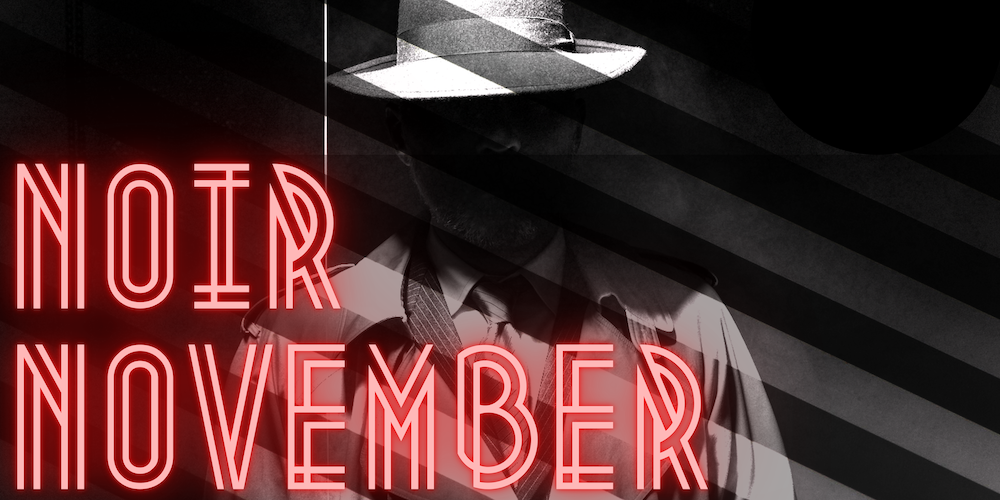Noir November: Blade Runner
Written by Cameron Geiser
Every day for the month of November, Cameron Geiser is reviewing a noir film (classic or neo) for Noir November. Today covers one of the greatest science fiction films of all time (and an iconic neo noir to boot): Blade Runner.
It's hard to be impartial when discussing one of your favorite films of all time. Especially when you're looking at it with a critical eye. This is one of those films I put on at least once every Autumn, especially if it's raining. Most of you have probably seen this film, or are at least familiar with its place in the cultural zeitgeist. However, for the uninitiated, Blade Runner is a Neo-Noir in that its definitive genre is Science Fiction, but the heavy Noir undertones are meshed completely with the tale being told. In fact, I'd say this is the most effective Neo-Noir out there. But what is it all about anyways? Set in the dystopian Los Angeles of 2019, synthetic androids, or replicants as they're known in the film, are built by the all-powerful Tyrell Corporation to work on the off-world space colonies. After a small group of advanced replicants escape from their subjugation, they head to Earth to confront their maker.
Which brings us to our Blade Runner, Rick Deckard (Harrison Ford), a burnt out cop who can't even get a decent bowl of noodles before being called in for a job. He initially declines, but reluctantly agrees to hunt down the rogue replicants after watching a video of the film's opening scene where another Blade Runner is killed while administering a Voight-Kampff test on one of the replicants, Leon (Brion James). Deckard's boss then has him meet with CEO Tyrell (Joe Turkel) himself to make sure that the tests are still accurate on the more advanced replicants. Tyrell requests that Deckard test his assistant Rachael (Sean Young) first, and after doing so Deckard privately tells Tyrell that she isn't human, but believes she is, and then asks the obvious question, but why? Tyrell coyly, and with a bit of pride, admits that Rachael is an experiment. She has fake memories implanted in her code for “emotional cushioning”, the implication being that this would make the replicants easier to control.
Harrison Ford in Blade Runner.
Taking that new information in, Deckard continues to forage for clues in Leon's hotel room where he discovers the replicant's photographs and a synthetic snake scale. After he digs further into the truth he tracks down Zhora (Joanna Cassidy) at a strip club and kills, or “retires”, her after a chase through crowded streets. This triggers Leon, who almost kills Deckard before being shot by Rachael who grabbed Deckard's gun after it was knocked from his grip. Roy (Rutger Hauer), the leader of the replicants, goes to inform the last replicant, Pris (Daryl Hannah) that they are the last of their group. Though the replicants weren't idly sitting by while Deckard was looking for them. Roy, Leon, and Pris had all been actively searching for clues on how to meet with Tyrell as well. After interrogating a replicant specialist earlier in the film they obtained the identity of a J. F. Sebastian (William Sanderson), a geneticist known to work closely with Tyrell.
The whole reason the replicants came to earth was to bargain with Tyrell into gaining more time. You see, the replicants were built with four year lifespans, and they really didn't appreciate that. Eventually it comes down to just Deckard and Roy on a rooftop in the rain with one of the most memorable monologues in a science fiction film where Roy saves Deckard's life in an attempt to force the Blade Runner into empathizing with their short-lived lives. After watching Roy power down, Deckard is reminded by one of his superiors that there's one more replicant left to retire, Rachael. After she'd been confronted with her own reality Rachael fled Tyrell and confided in Deckard, which resulted in her becoming a target too. Having just barely lived through his encounter with Roy, Deckard and Rachael flee Los Angeles together.
The isolation, paranoia, and general fear of encroaching new horizons within this film are all definitive notions of any good Noir. Blade Runner excels in crafting an appropriately murky atmosphere that tonally fits the mood of Noir exquisitely. There are deviations from the form here for sure, Deckard is a far more silent detective archetype than most Noir leads. There's no voiceover opening the door to this character's mind either. It's also far slower paced than most Noirs, but this does allow for immersion to fully take control of the film's vibe. The soundtrack composed by Vangelis doubles down on that eerie sensation of loneliness that permeates the film with an appropriately somber energy. Which gets to one of the deeper notions I can respect about this film. It allows a stillness in between the larger scenes, the characters have time to wallow in their own headspaces. There's no rush to the next explosion or quip, and I find that more refreshing every time I revisit the world of Blade Runner. It's a film that has some heady ideas about reality, life and death, the morality of crafting other intelligent beings and the dangers of desiring control over others. If you have somehow missed this one, don't wait any longer. Go watch it!
Cameron Geiser is an avid consumer of films and books about filmmakers. He'll watch any film at least once, and can usually be spotted at the annual Traverse City Film Festival in Northern Michigan. He also writes about film over at www.spacecortezwrites.com.






